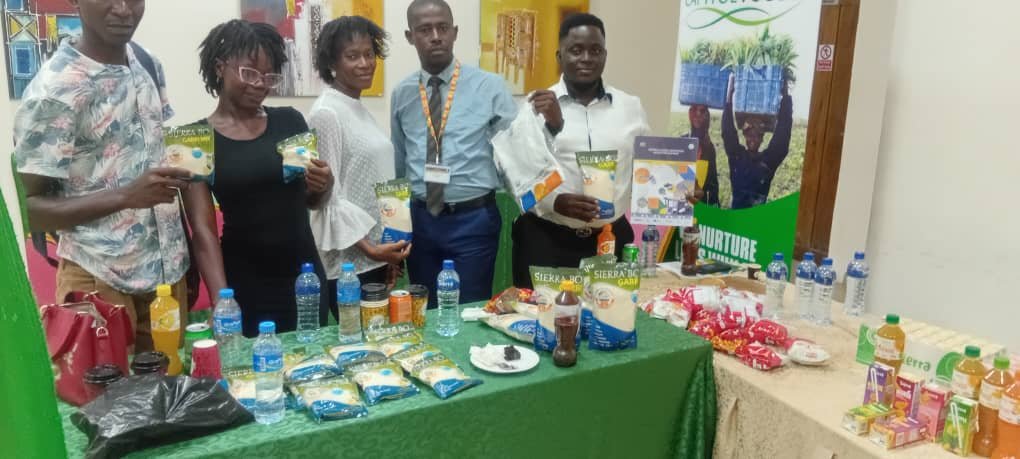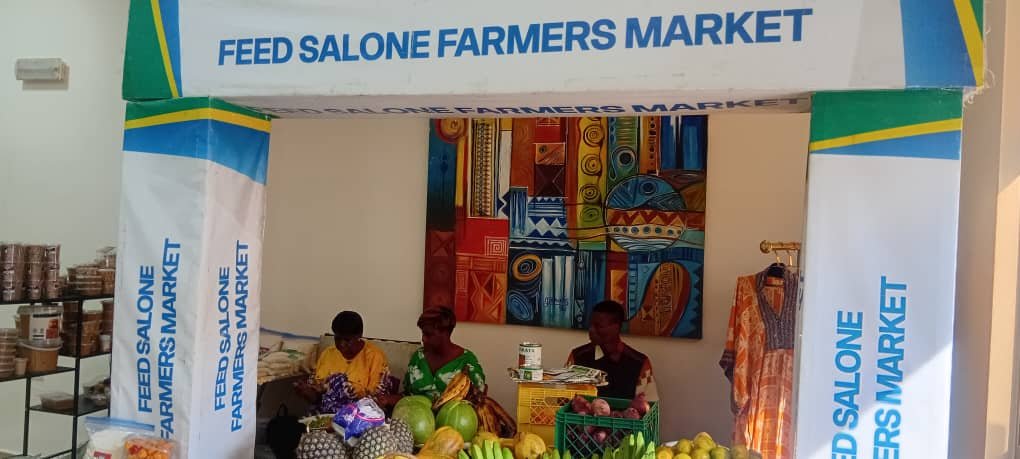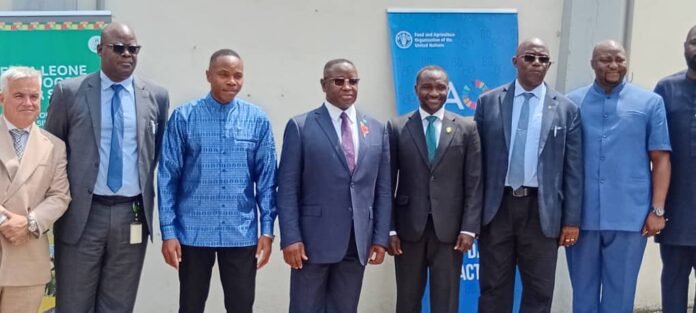By Hassan Solokoh Bockarie
President Julius Maada Bio officially opened the Sierra Leone AgriFood Investor Summit on Tuesday, 28th October 2025, at the New Brookfields Hotel, Freetown, a landmark three-day event aimed at attracting investment into the country’s fast-growing agricultural sector. The summit brought together government officials, international development partners, private investors, and agribusiness leaders.
Dr. Edward Hinga Sandy, Executive Director of the National Investment Board (NIB), in his welcome address, highlighted Sierra Leone’s progress in improving its business environment through policy reforms and strong political commitment. “Endorsements from the private sector and development partners confirm a significant improvement in the investment climate under current leadership,” he said.
He explained that the NIB, serves as the gateway for business establishment, integrating key agencies including the former Investment and Export Promotion Agency and the Corporate Affairs Commission, which now allows business registration within 24 hours. He noted that the NIB also houses the Public-Private Partnership Unit for government business negotiations.
Dr. Sandy revealed that foreign direct investment (FDI) inflows have steadily increased, with notable private sector financing contributions, including a $15 million investment and a further $25 million planned, alongside ICT support for local enterprises. “The surge in investment is a reflection of deliberate reforms that have improved Sierra Leone’s ease of doing business,” he affirmed.

Minister of Agriculture and Food Security, Dr. Henry Musa Kpaka, in his statement, thanked the summit’s organizers and reiterated President Bio’s vision for Sierra Leone to achieve middle-income status by 2039. “Agriculture and food systems were declared the number one priority for the President’s second term,” he said, adding that progress is already evident through increased local production of staples like rice, reduced imports, and growth in agri-processing ventures.
He emphasized that agricultural transformation cannot be achieved by government alone. “We must unleash the potential of the private sector and work with smallholder farmers to drive investment and innovation,” Dr. Kpaka urged. He described the summit as a platform to translate ambitions into bankable projects through business-to-business and government-to-business partnerships, with investors and local agribusinesses expected to forge tangible deals over the three-day event.

FAO Representative in Sierra Leone, Mr. Saeed Abubakar Bancie, described7 the summit as a “landmark event” that demonstrates Sierra Leone’s growing regional influence. He noted that the summit aligns with global efforts to transform agri-food systems for inclusive economic growth. “FAO proudly stands with Sierra Leone, supporting the government’s Feed Salone initiative since 2021,” he said.
Through its Investment Center and partnerships with the Vice President’s Office, FAO has supported initiatives such as the National Forest Inventory and value chain development in crops like rice, cassava, cocoa, and cashew. Mr. Bancie announced Sierra Leone’s recent inclusion in two FAO initiatives—the Hand in Hand Initiative and the Digital Villages Initiative—to boost data-driven agricultural transformation and digital inclusion in rural areas.
Delivering the keynote address, President Dr. Julius Maada Bio framed the summit as a defining moment for national self-reliance. “This is more than an investor conference—it is a call to action to secure our dignity through food self-sufficiency and job creation,” he declared. He called on investors to bring both capital and technical expertise, stressing that “agriculture is a science” and must be driven by knowledge and innovation.
President Bio reaffirmed government’s commitment to building a modern aquaculture economy anchored on private sector participation and global partnerships. He acknowledged the support of FAO, the EU, FCDO, and British International Investment, among others, for their role in organizing the summit.
“This summit marks a historic first for Sierra Leone,” the President noted, citing the participation of over 25 international investors, 40 local companies, and representatives from government, civil society, and development partners.
Reintroducing the Feed Salone program, he emphasized that every seed planted represents a promise—to reward farmers’ labor, build a future within Sierra Leone, and end hunger. Public spending on agriculture, he added, has risen from 2% to 7% of the national budget, the highest in the country’s history.
The summit, spanning three days, is expected to catalyze new partnerships, investments, and innovations that will define Sierra Leone’s agricultural transformation and economic future.








